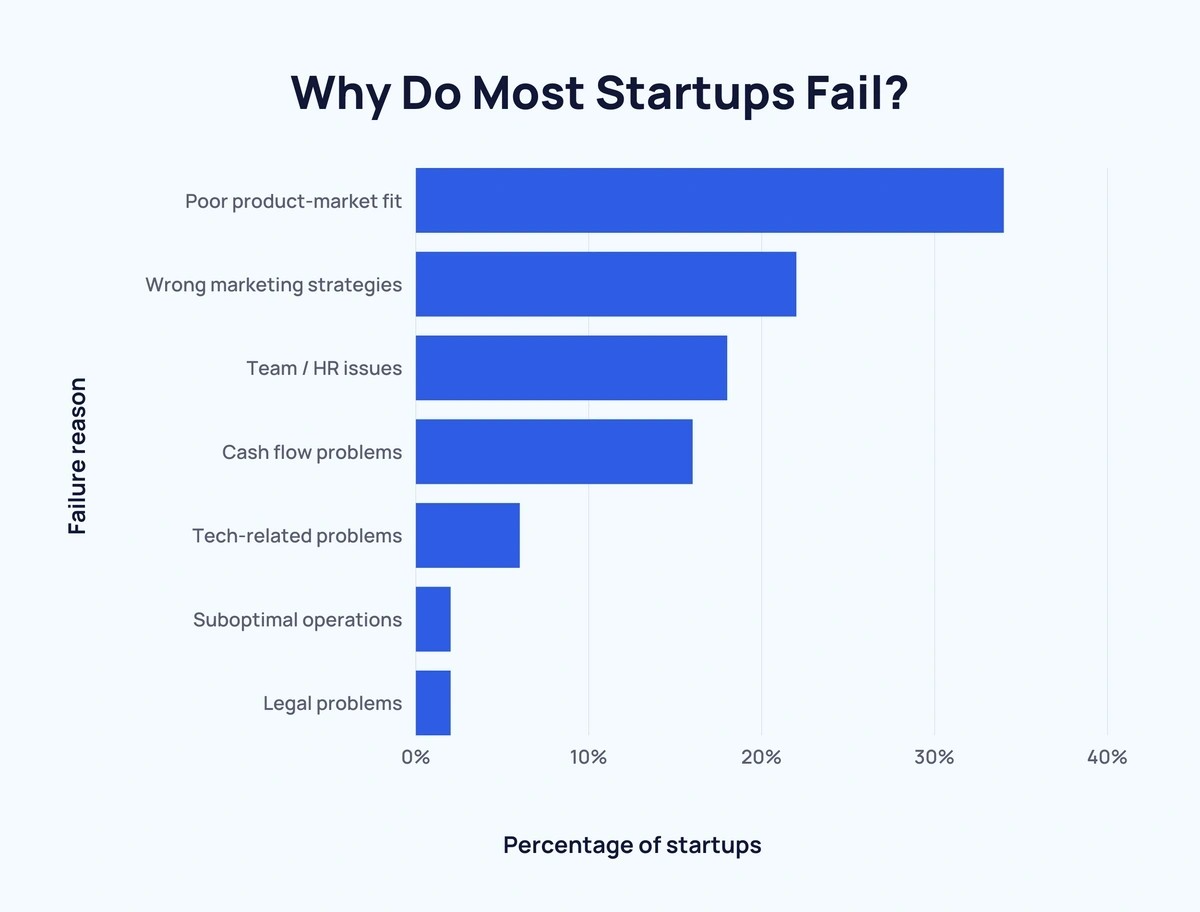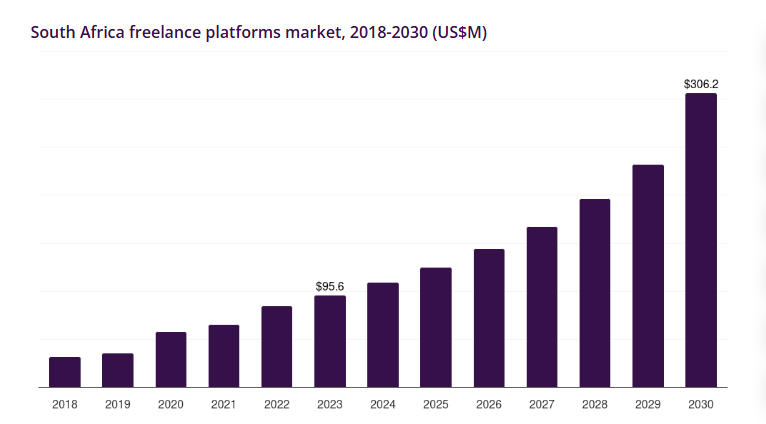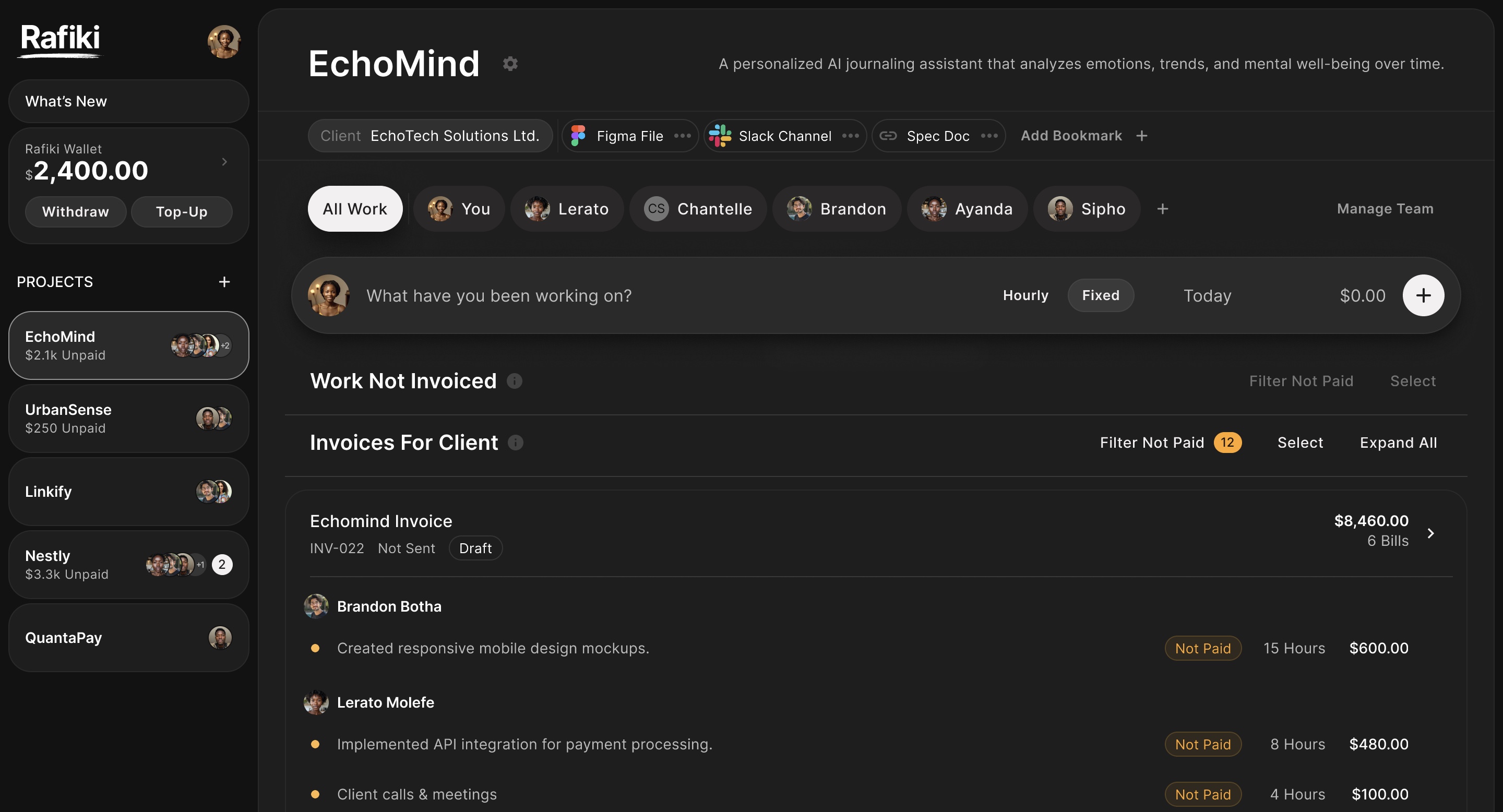According to data, only 10% of startups succeed. Most don’t fail because they run out of money. They fail because they can’t get the people part right.

Startup hiring and talent strategies are everything, and this is why:
- Startups often face high operational demands.
- Struggle with low resources.
- Rush through hiring.
- And end up with underqualified teams and mismanagement.
The result? Missed opportunities, wasted capital, and—too often—another “failed startup” headline. But the truth is, you don’t need a full-time CMO, CFO, or growth lead on day one. What you need is access to senior-level expertise at a fraction of the cost. And only when your business needs it, never when it doesn’t.
While companies in the US, UK, and Europe struggle with inflated salaries and talent shortages, a quiet opportunity sits 8,000 miles south. Companies are partnering with South Africa's fractional talent, gaining access to specialised expertise and collaborative teams to meet operational demand.
To implement this hiring method at your global agency or business, you need a fractional talent strategy.
What is a Fractional Talent Strategy?
A fractional talent strategy is a modern approach to workforce management where a company hires highly skilled professionals on a part-time, retainer or project basis, rather than as full-time employees.
Here’s how it differs from other hiring models:
- Fractional vs Full-Time: A full-time employee is a dedicated resource with a long-term commitment, receiving a salary and benefits.
A fractional professional works for multiple clients, provides specialised expertise for a set number of hours per week, and focuses on specific, high-impact tasks as and when you need them
- Fractional vs Freelancers: While both are independent contractors, a freelancer is typically hired for a specific, short-term project (e.g., writing a blog post).
A fractional specialist has a deeper, more integrated relationship with the company, often working on an ongoing retainer for a set number of hours per week and contributing to the company's long-term strategy (e.g., design your GTM and manage the execution).
- Fractional vs Consultants: A consultant typically provides advice and strategic recommendations, but often does not handle the execution.
A fractional professional not only provides strategic guidance but also gets hands-on with the implementation and execution of the work. For the most part, fractional specialists are highly senior freelancers or consultants who can effectively execute strategy.
Why South Africa is the Ultimate Fractional Talent Hub
- Unbeatable Cost Arbitrage
With fractional talent in South Africa, businesses can access highly skilled professionals for a fraction of the cost found in traditional markets.
For instance, a fractional CMO in South Africa may charge between $2,500 and $4,000 per month, compared to $8,000 to $15,000 in the U.S.
Similarly, a fractional CFO costs $2,000 to $3,000 per month, versus $6,000 to $12,000 in Europe, and a fractional CTO costs approximately $4,000, compared to $10,000 to $20,000 in Silicon Valley.
And it’s not just about C-Suites.
Fractional resources across positions and skillsets such as product design, software engineering, content creation and performance marketing are increasingly commonplace for strategic team building and resource allocation for startups and agencies.
It’s the perfect way to test the waters before committing to a full-time hire.
- Perfect Time Zone Alignment
South Africa’s time zone is just one to two hours ahead of Europe, creating a significant overlap for real-time meetings and collaboration.
For clients on the U.S. East Coast, South Africa is six to seven hours ahead, allowing for morning meetings in the U.S. to align perfectly with the afternoon productivity window in South Africa.
This makes South Africa an ideal hub for global agencies that need to bridge the operational gap between American and European teams.
- Growing Community of Freelancers and Fractional Talent
As of 2019, 34% of South Africa’s working population was freelancing.
And as the data below suggests, it’s not going down soon, with revenue from the freelance platforms market already crossing the estimated revenue of US$95.6 million in 2023.

How Global Agencies/Businesses Can Hire South African Fractional Specialists (with Rafiki)
Rafiki is purpose-built for flexible teams, subcontracting, and fractional talent engagement.
We combine fractional talent access + cross-border payments infrastructure + compliance into one operating system.
Here’s how it works:
Step 1: Define the Gaps
Before you start looking for talent, you need to identify where your business could benefit from specialised, part-time expertise:
- What roles do you actually need? (Fractional CMO? Technical lead? Growth marketer?)
- Is it project-based (launching a new product) or recurring (running campaigns)?
- How much time do you need: 5 hours a week, or 3 months of intensive work?
Step 2: Access Pre-Vetted Talent
Rafiki Talent Services connects you with senior, KYC-ed freelancers, fractional specialists, and micro-agencies.
Every profile is pre-vetted, saving you time and reducing hiring risk. Fill out this form to get matched with the right talent.
Step 3: Payments & Compliance with Rafiki OS
Here’s where most companies get stuck. But Rafiki OS makes it simple.
We leverage modern Stablecoin & Fiat payment rails, automated compliance, and embedded fractional specialists to create an all-in-one destination for onboarding, managing and paying flexible teams with ease.

Rafiki OS provides:
- Automated Invoicing: Once you've agreed on the work, the freelancer or team can use Rafiki OS to automatically generate and send you invoices for their billable work.
- Multi-Party Invoicing: By default, subcontracting and working with fractional independents or micro-agencies is a multi-party process, yet existing invoicing solutions still treat it as a one-to-one engagement. Rafiki consolidates the processes of subcontracting and multi-party invoicing into a single workflow, radically simplifying operations, saving time, reducing human error, and enabling instant cross-border settlement.
- Simplified Cross-Border Payments: Rafiki currently supports transactions in multiple countries and currencies, including ZAR, USD, EUR, and stablecoins. We use stablecoin and local payment rails to significantly reduce fees and speed up the time it takes for freelancers to receive their funds compared to traditional methods like PayPal or bank wires. All transfers between businesses and freelancers within Rafiki OS are instant and free. Rafiki OS users can receive international payments from the US for just 0.2%.
- Automated Compliance: We take care of the administrative burden of hiring a remote workforce, providing automated compliance checks (KYC/KYB) to ensure a safe and compliant onboarding process, which is critical for businesses operating in different regulatory environments.
Step 4: Scale and Manage Your Fractional Workforce
With Rafiki, you can manage all your flexible teams, contractors and subcontractors through one dashboard.
This includes handling invoices and payments for multiple entities in a single, automated transaction.
And as your business needs change, you can easily adjust the number of fractional professionals you work with, without the financial and administrative commitment of full-time hires.
Subcontracting & Fractional Talent Made Easy
Rafiki has been purpose built around collaborative project work, subcontracting, and fractional teams. Unlike other embedded financial products or invoicing softwares on the market, we’re hyper-focussed on subcontracting and the associated flow of funds. By default, subcontracting is multi-party, yet existing solutions still treat the process as a 1:1 engagement.
Rafiki collapses the process of subcontracting and multi-party invoicing into one workflow, radically simplifying, saving time, reducing human error, and allowing for instant cross-border settlement.
Book a demo today or apply to become one of Rafiki's trusted independents or agency talents embedded into our global software.
-
Original LinkedIn Artcile here.






